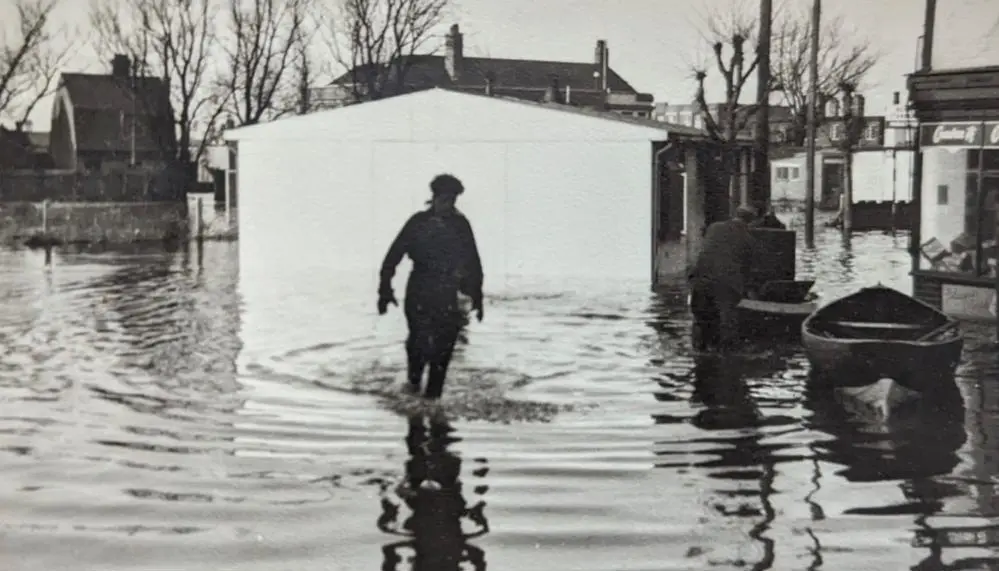The coastal floods of 70 years ago are widely acknowledged as the worst peace time tragedy to have occurred in Britain during the twentieth century. The floods, caused by a tidal surge and storms in the North Sea, claimed the lives of over 2,500 people in Europe – more than 300 of them in the UK.
'When The Sea Came In,’ at The Hold on Ipswich Waterfront on Saturday 4 February, will focus on the impact the floods had in Suffolk. The event will feature contributions from historians and flood emergency professionals and will highlight lesser-known aspects of the flood and its consequences.
Speakers include Dr John Greenacre, Dr Harvey Osborne and Denise Parkinson from the University of Suffolk, Dr Christopher Hilton from Britten Pears Arts and Peter Langford MBE from the Suffolk Resilience Forum.
The talks will explore a number of questions:
- What made the floods of 1953 so deadly?
- What were the implications for Suffolk’s coastal landscape and agricultural economy?
- What was the emergency response in 1953 and how effective was it?
- Is such an event likely to occur again? How well prepared is Suffolk to face a similar challenge?
Suffolk Archives is also hosting an exhibition of archive material related to the floods in the Wolfson Learning Space at The Hold from 11am on the day of the talks.
‘Suffolk’s Green Story - Reflect | Learn | Act’ will also be open in the Exhibition Gallery to visit for free. The exhibition explores the changes and challenges that have shaped the environment in Suffolk and what we can all do to make a difference today.
Councillor Bobby Bennett, Suffolk County Council’s Cabinet Member for Equality and Communities said:
“The floods of seven decades ago are an important event in not just our county’s history, but regionally, nationally and across Europe. This event offers the opportunity to remember on this sombre anniversary, but also look at the present and the future and the risks of tidal flooding as a coastal county.”
Dr Harvey Osborne, Course Leader, History at University of Suffolk, said:
“The coastal floods of 1953 are Britain’s worst peace-time disaster, and our afternoon of talks will reflect on the causes, impact and consequences of the floods and highlight current responses to the threat of coastal flooding.”
'When The Sea Came In’ is on Saturday 4 February at The Hold on Ipswich Waterfront. The display of archive materials will be available in the Wolfson Learning Space from 11am to 1pm, and the talks begin at 1pm.
For more information and to book tickets visit: www.suffolkarchives.co.uk/whats-on/

